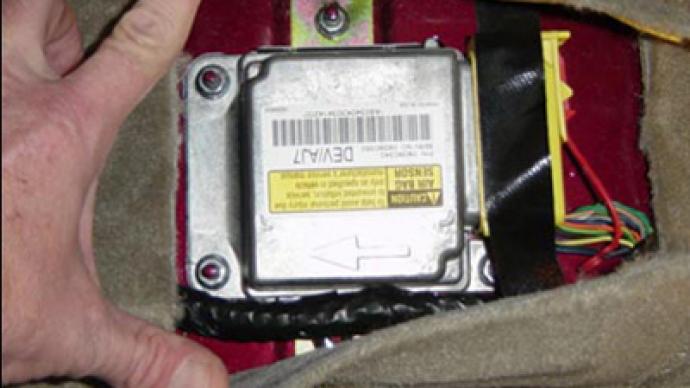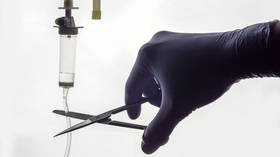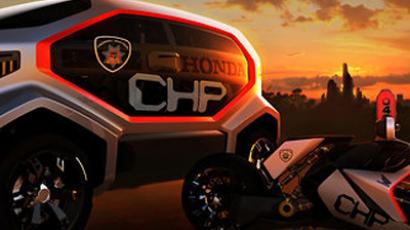‘Black Box’ or ‘Spy Box’? US regulators want to make car data recorders mandatory

US regulators want to make event data recorders (EDRs), similar to “black boxes” used on planes, mandatory on all cars produced from September 2014. The move has sparked a tense debate between safety advocates and those worried about loss of privacy.
The National Transportation Safety Agency (NHTSA), which is in charge of setting motoring regulation, has submitted a proposal for public comment in the Federal Register. Currently, standard EDRs automatically collect data on a car’s speed, the use of brakes, the number and seating of passengers, seat belt deployment and dozens of other parameters to help reconstruct how a car was behaving in the seconds before a crash. The data is continuously recorded and overwritten onto an electronic carrier inside the car, but when certain triggers are set off – say, an airbag is deployed – the data is saved and can be downloaded. The recording, which is usually the last 30 seconds before any accident, is then passed onto the NHTSA for analysis, currently with the owner’s consent."By understanding how drivers respond in a crash and whether key safety systems operate properly, NHTSA and automakers can make our vehicles and our roadways even safer," claimed Transportation Secretary Ray LaHood. "This proposal will give us the critical insight and information we need to save more lives."Supporters state that the measure merely legislates a device that has already been endorsed by car makers and drivers alike. First commercialized around two decades ago, NHTSA believes EDRs will be installed on more than 95 per cent of all vehicles manufactured next year.Few of the opponents of the new measure disagree with EDRs as they are currently, but most say that the new law will pave way for a multitude of uses beyond the original remit.Problematically, few legal limits on them exist as of now. Only thirteen states have any legislation on EDRs at all. If the new regulations are passed, they need to establish just what data can be recorded, for how long, who owns it, and if there will be any sanctions for a driver who blocks his device, or refuses to hand over his data.Some say the worst-case scenarios are only a few years away.“While the initial motivation for auto black boxes was sensible and positive they are now likely going to become yet another surveillance device,” Steven Rambam, a private security expert, told RT.Rambam believes that under the banner of safety, police can turn EDRs into their primary monitoring tool, collecting data on whether motorists are speeding, wearing seatbelts and following safety rules. Precedents have already begun to appear when EDR readings are made the basis for fines and court judgements about traffic accidents.Since technology already exists to transfer any data collected by an EDR to an outside monitoring center in real time, Rambam reckons law enforcement agencies would be foolish not to save resources by simply monitoring driving behaviour from a distant location, as opposed to trying to catch lawbreakers with old-fashioned speed guns and patrols.And Lillie Coney, associate director of the Electronic Privacy Information Center, says it’s not just the cops who would like to know how you are driving.“You should not think of this as being an opportunity to sell data to auto-insurance companies for risk evaluation. That’s a real possibility. Data is valuable,” she warned NHTSA in an interview with wired.com.Coney and others are painting a future where all your car behaviour will be accessible to someone outside (whether or not you know that they are watching), from police who will remove driving licenses from consistently bad drivers, to insurance companies giving you a higher premium for being involved in potentially dangerous situations.In the right hands the new capabilities could save thousands of lives, but complying with them involves handing a lot of power to the authorities. Just how much, will become subject of ever-louder public debate. But one thing is clear already – as technology advances (and all of the data collection devices for the above possibilities already exist) your car is no longer your own private space, and driving it is no longer just a personal activity.














